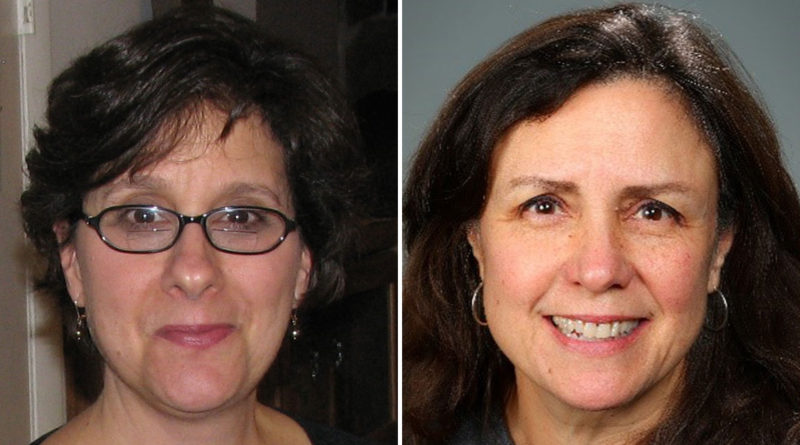Op-Ed: COVID-19, Racial Injustice and Climate Change Require a Bold Approach, Not Incrementalism

With a nation rattled by a public health emergency, a deep recession that has left thousands jobless, and growing signs of climate change, it may be time for bold new ideas to address those crises.
“This is too good a crisis to go to waste” was the message of the two-part virtual convening Rebuilding New Jersey after COVID-19: Advancing a Healthy, Resilient, Sustainable and Fair Garden State held June 12 and 17, by the New Jersey Climate Change Resource Center, the New Jersey Climate Change Alliance and the Eagleton Institute of Politics.
Panelists pointed to three intersecting crises facing New Jersey and the nation:
- The immediate crisis of COVID-19 and its associated economic depression, unequally affecting the same populations hardest hit by the virus;
- The centuries-old crisis of structural racism that prevents people of color from having access to the same economic, environmental, and social conditions as their white counterparts; and
- The climate crisis, which has been building for more than a century and is having disproportionate impacts on low-income populations, communities of color, immigrants, children, older residents, and people with disabilities and pre-existing health conditions.
In New Jersey, populations hit hardest by COVID-19 are the same populations that suffer other health disparities including diabetes and heart disease. Black New Jersey residents are more likely to die from eight of the 10 leading causes of death in New Jersey than their white counterparts. High school graduation rates in New Jersey for Black and Hispanic students are 83% and 84%, respectively, compared to 95% and 97% for their white and Asian counterparts. New Jersey’s median income for Black and Hispanic households is $41,800 and $44,900, respectively, compared to $84,000 for white households. Panelists pointed to the unfairness that so many low-wage jobs were deemed “essential” during the COVID-19 pandemic, yet the value of those jobs is not reflected in workers’ salaries. One panelist pointed to a study that found that a worker making minimum wage in New Jersey would have to work 100 hours per week to afford the average monthly rent for a one-bedroom apartment. Harvard University researchers found that people with COVID-19 who live in U.S. regions with high levels of air pollution are more likely to die from the virus than people who live in less polluted areas. Evidence of these multiple stressors is supported by the fact that a Black child born today in Trenton has a life expectancy of 73 years compared to a white child born in Princeton Junction with an average life expectancy of 87 years.
Intersecting crises
Panelists stressed the urgency of addressing these intersecting crises through bold actions. They highlighted deployment of resources at the state and local levels as a major opportunity to advance comprehensive solutions, urging New Jersey to shift its focus from short-term state spending to the costs of inaction in investing in solutions to poverty, unequal education, underemployment, poor health, clean energy, climate and social justice. They called for deep collaboration among government, the business sector, academic institutions, philanthropy and other sectors without which transformative ideas cannot take hold or gain political momentum.
Panelists called for abandoning historic incrementalism in social, economic and environmental policies and, instead, urged New Jersey to advance big ideas that will propel our state to a future that has equity, resilience and health at its foundation. They pointed to the November elections as a mechanism for New Jerseyans to demonstrate support for lasting solutions to intractable problems facing the state.
Priorities for action
We heard 10 key needs:
- Processes to assess impacts of public infrastructure investment and economic development on health equity, social and environmental justice and climate change;
- Expansion of health insurance opportunities, especially since COVID-19 job losses will have a greater impact on lower-income workers leaving them without insurance;
- Creation of job opportunities for people most affected by social injustices, including COVID-19 contact tracing and clean-energy jobs, and the creation of a “Climate Corps,” modeled on the New Deal-era Civilian Conservation Corps that would give young people an opportunity to implement health equity and climate solutions in their own communities;
- Well-organized, strong and collaborative government at the state and local levels;
- Allocating CARES Act funding earmarked for disaster response and hazard mitigation to reduce risks to populations most affected by changing climate conditions and health inequities;
- Expanding reliance on the state’s public academic institutions, including community colleges, to be the first line of intellectual defense in conducting research that supports efforts to address health inequities, social justice and climate change and, in doing so, provides critical education and training for New Jersey’s in-state students;
- A state budget that has adequate dollars in a rainy day fund and that invests in education, public transportation, affordable housing and clean, inclusive, resilient and safe communities, all which benefit residents disproportionately affected by health inequities, social injustices and climate change;
- Advancing climate change, infrastructure spending, environmental protection, and COVID-19 relief spending efforts that deliver multiple benefits to our hardest-hit communities by increasing access to “green spaces,” providing energy efficient heated and cooled homes, and reducing cumulative pollution burdens, all of which are critically important during periods of public health quarantines and climate-related sheltering in place;
- Ensuring adequate resources for our state’s public health infrastructure, recognizing that health equity is an outcome of all three crises: COVID-19, racial injustices and climate change; and
- Creating opportunities for young people to continue to lead the way by building incentives for a resurgence in public service.
Panelists discussed how these three crises are not new but have until now been viewed as separate challenges. They expressed hope that today’s increased consciousness about their intersection is an opportunity to step forward to addressing them head-on. More than anything, the panelists agreed that the time to act on advancing a healthy, resilient, sustainable and fair Garden State is now and our best efforts to do so must be bold, collaborative and transformative.
Follow this link for recordings of the virtual convening.



